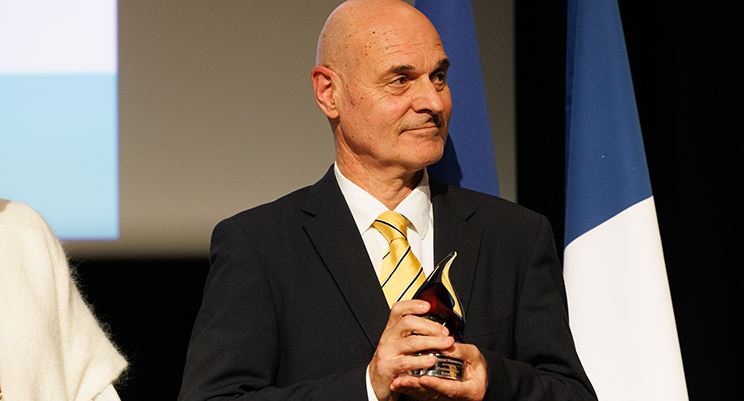Professor Peter Kremsner: the impact of the EDCTP Prize on clinical research in Gabon

In 2023, Professor Peter Kremsner was awarded the prestigious EDCTP Dr Pascoal Mocumbi Prize, recognising his substantial contributions to medical research in Africa. With the accompanying cash prize of €50,000, Professor Kremsner has embarked on pivotal initiatives aimed at enhancing the operational capacity of the Centre de Recherches Medicales de Lambaréné (CERMEL) in Gabon, and preparing for the start of a malaria treatment clinical trial.
Tackling infrastructure challenges
CERMEL has faced significant challenges due to frequent water and power cuts in Gabon, which have hindered research activities. In response, Professor Kremsner has initiated a project designed to achieve self-sufficiency in both water and power supply at the research centre. This initiative includes the utilisation of groundwater as a reliable alternative during interruptions to the public water supply. Furthermore, the installation of solar panels across the campus is underway, ensuring that CERMEL can maintain a consistent and independent power supply throughout the year. These infrastructural improvements not only bolster the operational capacity of CERMEL but also enhance its research capabilities.
A new approach to malaria treatment
The funds received from the EDCTP Prize have enabled the start of a study aimed at establishing the safety, tolerability, efficacy, and effectiveness of a single-dose treatment for uncomplicated malaria. Current therapies, although effective, require a three-day treatment regimen, with the most commonly used treatment, artemether-lumefantrine, necessitating a complex six-dose administration. This complexity often poses challenges for patients and healthcare providers alike.
Professor Kremsner’s team has designed a randomised, controlled clinical trial that compares a single-dose combination of artesunate-pyronaridine plus sulfadoxine-pyrimethamine against the standard six-dose regimen of artemether-lumefantrine. The trial commenced in 2024, and preliminary data indicates that the one-day treatment regimen may be comparable in efficacy to the established six-dose regimen. Should these findings be corroborated, this investigator-initiated trial, primarily funded by CERMEL, could significantly simplify malaria treatment, making it more accessible to those in need.
Professor Kremsner’s recent accomplishments at CERMEL exemplify the vital intersection of research, infrastructure, and public health. The establishment of self-sufficiency in water and power supply, coupled with the promising developments in malaria treatment, underscores the importance of sustained investment in medical research.
